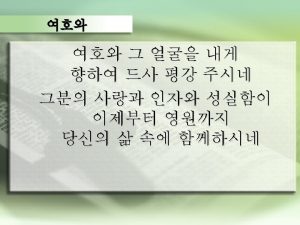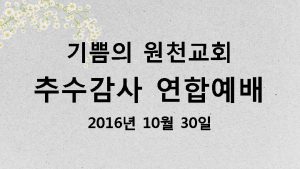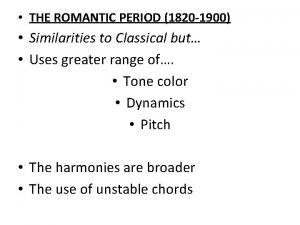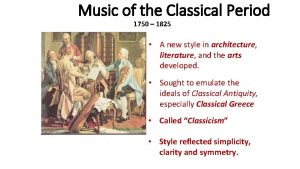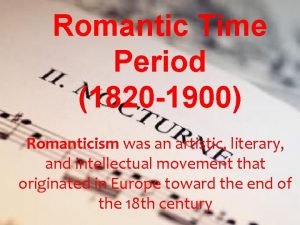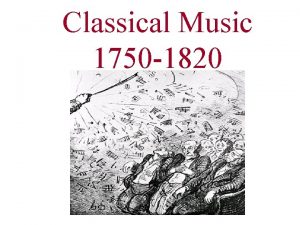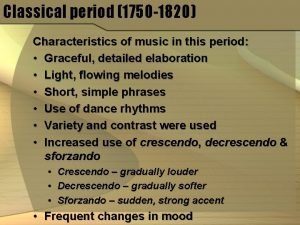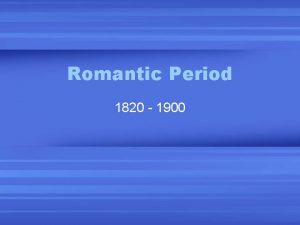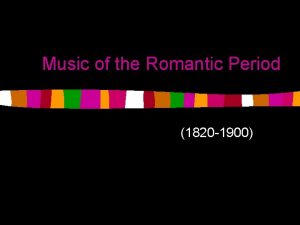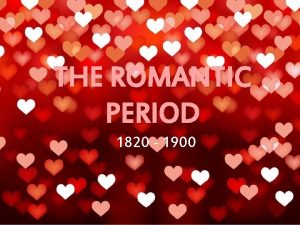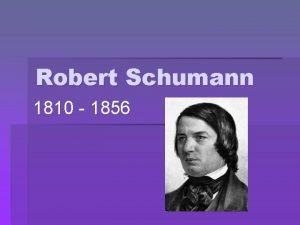Romantic Period 1820 1900 Romantic Period Expressiveness more







- Slides: 7

Romantic Period 1820 – 1900


Romantic Period • Expressiveness more important than form & order • Expressed emotion with little restraint • Describes things like nature, a scene or a feeling • Music given specific titles instead of being named by the form • Growing use of folk music • Beethoven is considered a transitional composer because his music transitioned from the Classical style into the Romantic style

Beethoven’s late period (1813 -1827) • Hammerklavier sonata – written primarily from the summer of 1817 to the late autumn of 1818 – considered Beethoven's single most difficult composition for the piano – set precedents for the length of solo compositions (it runs for approximately 37 minutes, if the tempo is adhered to exactly)

Ludwig van Beethoven’s late period (1813 -1827) • Most famous work produced during this time was probably Symphony No. 9 (includes “Ode to Joy”) – The last complete symphony he wrote (1824) – “Ode to Joy” is a poem by Friedrich Schiller – Original manuscript of this work sold in 2003 for $3. 3 million in London

Beethoven’s late period (1813 -1827) • Grosse Fugue is a single-movement composition for string quartet famous for its extreme technical demands on the players as well as for its unrelentingly introspective nature – Written in 1825 & 26, he was completely deaf – Originally the last movement for String Quartet No. 13, but it was so demanding and unpopular Beethoven’s publisher asked him to write another ending

Beethoven’s late period (1813 -1827) • String Quartet No. 14 in C sharp minor – Completed in 1826 – Contains 7 movements – Beethoven's favorite from the late quartets
